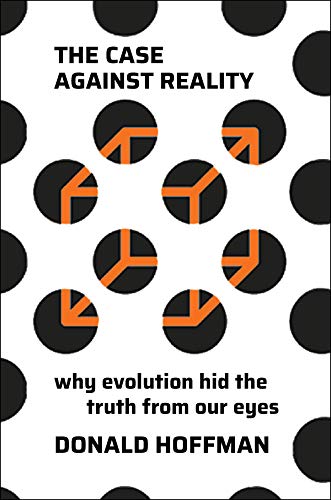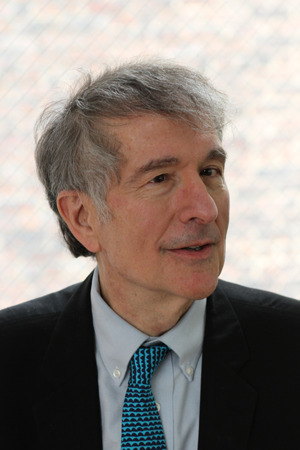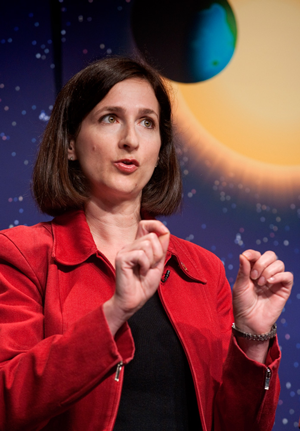Theory of multiple intelligences suggests that we should not consider human brain as one big computer that is either slow or fast, either good at everything or bad at everything, instead we should consider human brain as a collection of multiple computers, some performing well and some performing not very well. This theory identifies seven distinct intelligences and highlights that learners possess different kinds of intelligences, and minds, and “therefore learn, remember, perform, and understand in different ways”. The theory challenges the notion of an educational system that “assumes that everyone can learn the same materials in the same way and that a uniform, universal measure suffices to test student learning”. Dr Howard Gardner developed the theory of multiple intelligences in 1970s. In this podcast Dr Howard Gardner discusses, in detail, the origin and development of this theory. Dr Gardner discusses different aspects of this theory, defines, for the listeners, different kinds of intelligences, and touches upon the implications of adopting this approach for teaching and learning practices. In his book “Five Minds for the Future” Dr Gardner outlines the kinds of mental abilities and competencies that will be critical to success in 21st century work environment. And in his book “The App Generation” Dr Gardner discusses the expectations and characteristics of 21st century learners. This podcast touches upon all these concepts.
Dr Howard Gardner is the Hobbs Professor of Cognition and Education at the Harvard Graduate School of Education. Dr Gardner is also an adjunct professor of Psychology at Harvard University and is a Senior Director of Harvard Project Zero. He is the author of twenty-nine books, translated into thirty-two languages and has published several hundred articles.
I start this podcast by asking Dr Gardner what is intelligence and how should we define intelligence. Dr Gardner divides intelligence into three primary categories, these categories are: ability to create effective products or services; a set of skills to problem-solve; and the potential for finding or creating solutions for problems which involve gathering and developing new knowledge. Dr Gardner discusses these categories of intelligence in detail.
The theory of multiple intelligences outlines a number of intelligences such as musical–rhythmic and harmonic intelligence, visual–spatial intelligence, verbal–linguistic intelligence, logical–mathematical intelligence, bodily–kinaesthetic intelligence, interpersonal and intrapersonal intelligences, naturalistic and existential intelligences. Dr Gardner defines and discusses in detail, these intelligences.
When Dr Gardner originally presented this theory in 1970s, it was presented as research work in the area of psychology, and this research was mainly for psychologists. However educators expressed substantial interest in this theory. Dr Gardner explains why, in his view, educators were more interested in theory than psychologists?
Like any new research, any new theory, this theory also received its share of criticism. One major criticism of the theory is that it is ad-hoc: “it views and presents concept of intelligence differently and it uses the word intelligence where other researchers have traditionally used words like “ability” and “aptitude””. Dr Gardner expresses his views on these criticisms in detail.
This theory leads to, and suggests, a number of ideas to improve teaching and learning practices in schools. An interesting question that arises at this point is that is there an implementation framework that puts this theory to practice. Dr Gardener answers this question and highlights two concepts, firstly individualisation and secondly pluralisation of education that are relevant to putting this theory to practice. At this point I ask Dr Gardner that is there any research or systematic study that shows the effectiveness of this theory and the usefulness of the practices based on this theory. Is there data, based on experimental studies, available that shows the impact of putting this theory to practice in teaching and learning environments?
At this point in the podcast, we move onto the ideas that Dr Howard Gardner presents and discusses in his book “Five Minds for the Future”.
In his book “Five Minds for the Future” Dr Gardner writes that in our “rapidly changing world new challenges and opportunities will emerge in near future and it is hard to imagine these challenges and opportunities now”. He further suggests that in this rapidly changing world “five minds encapsulating skills, values, attitudes and knowledge are crucial”. According to Dr Gardner these five minds are:
- The Disciplined Mind: the mastery of major schools of thought, including science, mathematics, and history, and of at least one professional craft.
- The Synthesizing Mind: the ability to integrate ideas from different disciplines or spheres into a coherent whole and to communicate that integration to others.
- The Creating Mind: the capacity to uncover and clarify new problems, questions, and phenomena.
- The Respectful Mind: awareness of and appreciation for differences among human beings and human groups.
- The Ethical Mind: fulfilment of one’s responsibilities as a worker and as a citizen.
Dr Gardner discusses the origin of the idea of “ five minds for the future”. I ask Dr Gardner that is the idea of “five minds for the future” a progression and evolution of the theory of multiple intelligences, or is this a different and a new concept?
In the book “The Five Minds for the Future” Dr Gardner highlights that how education might change due to globalization, the digital revolution, lifelong learning, and due to increasing knowledge of the mind, the brain, and human genome. The impact of globalization, digital revolution and lifelong learning on education are being widely studied; I ask Dr Gardner that how would, in his view, better understanding of the mind, the brain and human genome impact teaching and learning practices.
In his recent book “The App Generation” Dr Gardner discusses characteristics and expectations of 21st century learners. This generation of learners uses smart phones, uses ready-to-use apps on mobile devices and is connected almost 24/7. Dr Gardner discusses the impact of digital technologies on this generation of learners. He outlines that, from teaching and learning perspective, and from social and emotional learning point of view, how this generation is different. Dr Gardner explains terms such as “app consciousness” and “app worldview”, and discusses the notion of identity and the capacity, and lack of it, of this generation of learners to connect to others.
I finish this discussion by asking Dr Gardner that is he satisfied with the present state of our educational systems.
Resources
Gardner, H., & Hatch, T. (1989). Multiple Intelligences Go to School: Educational Implications of the Theory of Multiple Intelligences Educational Researcher, 18 (8) DOI: 10.2307/1176460
Howard E. Gardner (2000). Intelligence reframed: multiple intelligences for the 21st century Choice Reviews Online, 37 (10), 37-37 DOI: 10.5860/CHOICE.37-5804
Gardner, H. (2008). The Five Minds for the Future Schools: Studies in Education, 5 (1/2), 17-24 DOI: 10.1086/591814
Gardner, H. (2009). The Five Minds for the Future Harvard Business Review Press
Gardner, Howard, and Katie Davis (2013). The app generation: How today’s youth navigate identity, intimacy, and imagination in a digital world Yale University Press




Connect With Us